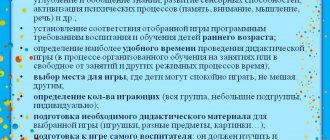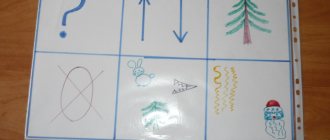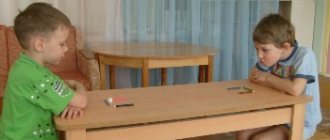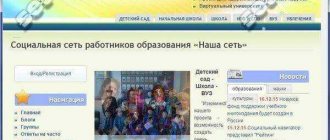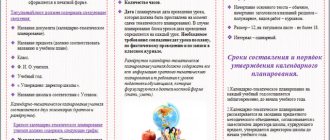Methodical office
Construction of the educational process based on the priority of universal human values, human life and health, free development of the individual; education of citizenship, hard work, respect for human rights and freedoms, love for the surrounding nature, Motherland, family;
- Adaptation of preschool educational institutions to social orders and the developmental characteristics of pupils;
- Effective and prompt informing of teachers about new methods, technologies, organization and diagnostics of the educational process;
- Interaction with the structures of the municipal methodological service, parents (legal representatives) of pupils, socio-cultural and educational institutions of the district and city.
- Regulatory and instructional materials;
- Methodological and reference literature;
- Children's fiction;
- Methodological materials, recommendations;
- Didactic, visual (demonstration and handout) material;
- An area for using Internet resources, photo and video materials.
The methodological office should contain regulatory and instructional materials published by educational authorities and other higher-level organizations. There must be documents related to the specific activities of teachers: “International Convention on the Rights of the Child”, Federal Law “On Education in the Russian Federation”, “Family Code”, “Labor Code of the Russian Federation”, Law of the Russian Federation “On Basic Guarantees of the Rights of the Child in the Russian Federation” and others, with which all employees of a preschool institution should be familiar. It is necessary to constantly monitor all changes made to regulatory documents that are mandatory for implementation.
A significant place in the work of the office is given to the proper organization of the library. The book fund of a kindergarten can be divided into books for teachers (methodological and reference literature) and books for children.
The library for educators should have a section “Reference Literature” (dictionaries, encyclopedias, etc., “Periodicals” (magazines “Preschool Education”, “Preschool Pedagogy”, “Preschool Education Management”, “Hoop”, etc.). Necessary highlight the section “Pedagogy and Psychology”, which should present the works of great teachers, books on general problems of pedagogy and psychology.
A significant place is occupied by special methodological literature, which should be distributed among the sections of the program implemented in the preschool educational institution and partial programs selected to ensure a holistic educational process:
- Game activity;
- Physical education and health work;
- Education of cultural and hygienic skills;
- Sensory education;
- The child and the world around him;
- Speech development;
- Formation of elementary mathematical concepts;
- Moral education;
- Labor education;
- Fiction;
- Artistic and aesthetic education;
- Visual activities;
- Construction;
- Manual labor;
- Musical education;
- Young children;
- Materials on preparing preschoolers for school and on continuity between kindergarten and school;
- Interaction with parents;
- Ensuring safety and vital functions.
The book stock available in the methodological office must be strictly taken into account. To do this, a card index of all available literature and alphabetical indexes must be compiled.
Methodological materials can be presented separately, which include recommendations, letters from the Ministry of Education of the Russian Federation, and education authorities. Here the work experience of the best teachers in a given territory, plans for methodological activities for educators and parents in the region or city can be presented.
Kindergarten No. 17 “Rodnichok”
System of methodological work in MBDOU “Kindergarten No. 17 “Rodnichok”
Methodological work is a holistic system of measures, based on the achievements of science, best practices and analysis of teachers’ difficulties, aimed at improving the skills of each teacher, at generalizing and developing the creative potential of the team, and at achieving optimal results in the education, upbringing and development of children.
The goal of methodological work in kindergarten is to create optimal conditions for the continuous improvement of the level of general and pedagogical culture of participants in the educational process.
Creating effective conditions for the comprehensive continuous development of children. The quality of professional development of preschool teachers and interaction with families determines the main tasks of methodological work:
- training and development of teaching staff, management of their professional development;
- identification, study, generalization and dissemination of advanced pedagogical experience of kindergarten teachers;
- preparation of methodological support for the implementation of the educational process;
- coordination of the activities of the kindergarten and families in ensuring the comprehensive continuous development of pupils;
- coordination of the activities of the kindergarten with institutions of the surrounding society to achieve the goals of development of pupils and the kindergarten as a whole;
- analysis of the quality of work in order to create conditions for ensuring positive changes in the development of the personality of students through increasing the professional competence of teachers.
Approaches to organizing methodological work are based on :
- systemic-active approach: understanding the goals and objectives of the preschool educational institution, its status and conditions, as well as ensuring the integrity of the educational process in the context of the use of variable programs and technologies, taking into account the influence of external and internal relations on it;
- a person-oriented approach: ensuring a more complete disclosure of the capabilities and abilities of each teacher and child, the team as a whole, and a focus on development;
- professional and personal qualities of teachers;
- differentiated approach: taking into account the level of professional competence and individual educational needs in building a system of methodological work in kindergarten;
- the approach of free self-determination: the free choice of educational programs and paths of self-realization by each teacher;
- motivational-stimulating approach: the use of various incentives that arouse interest and motives for activity;
- correctional approach: timely elimination of deficiencies identified during pedagogical monitoring and the causes that cause them.
Directions of methodological work
The center of all methodological work in kindergarten is the methodological room. He plays a leading role in assisting teachers in organizing the educational process, ensuring their continuous self-development, and generalizing advanced pedagogical experience. Increasing the competence of parents in matters of raising and educating children. The teaching room is a collection of the best traditions of a preschool institution, therefore the main task of the deputy head is to make the accumulated experience alive and accessible. To teach teachers to creatively transfer it to work with children, to organize the work of this methodological center so that educators feel in it as if they were in their own office.
Methodological room model
| Bank of external information | Bank of internal information |
| Regulatory and legal documents of the Russian Federation | Regulatory and legal documents regulating the activities of the kindergarten |
| Organization of methodological work in kindergarten | Planning kindergarten activities |
| Child development in the educational space of kindergarten | Organization and management of educational activities of kindergarten |
| Organization of interaction between the kindergarten and the families of pupils and the school | Control and regulation of educational activities of kindergartens |
| Information from periodicals of preschool education |
Structure, forms and methods of methodological work
In order to make the right choice of forms and methods for their team, the kindergarten administration is guided by:
- goals and objectives of the preschool educational institution;
- quantitative and qualitative composition of the team;
- comparative effectiveness of forms and methods of work;
- features of the educational process;
- material, moral and psychological conditions in the team;
- real opportunities;
- best practices and scientific recommendations.
The forms of organizing methodological work in our kindergarten are::
- teacher councils (6 teacher councils during each academic year);
- seminars, workshops (according to annual objectives);
- open viewings both within the kindergarten and at the city level;
- participation in the methodological association “Search”;
- medical and pedagogical meetings;
- consultations;
- work of the creative group.
Planning teaching hours for teachers in the 2016/2017 academic year (PDF) .
Seminars and consultations
Topic: “Individual assistance to a disabled child in the conditions of integrated learning in an educational institution” (PDF).
Topic: “The educational significance of staging works of art in older preschool age” (PDF).
Topic: “Organization of play space in a modern preschool educational institution” (PDF)
Topic: “Patriotic education of preschool children” (PDF)
Topic: “Improving cognitive and research skills in preschool children in the process of implementing projects” (PDF)
Topic: “The effectiveness of teachers’ use of developmental forms of health-improving work in the educational process” (PDF)
Topic: “Valeological education of parents” (PDF)
Topic: “The effectiveness of teachers’ use of technologies for the purposeful formation of children’s value attitudes towards health and a healthy lifestyle” (PDF)
Topic: “A healthy teacher is a healthy child” (PDF)
Guidelines
Work experience related to the topic (kindergarten, your city, other cities, foreign countries).
Literature on the topic (you can give a list with a brief annotation or provide a card index).
Visual material related to this issue, a list of equipment, drawings, diagrams, samples of crafts, etc.
The variety of changing material under different headings, colorful, methodically well-designed, involuntarily attracts the attention of teachers. It is necessary to provide for the possibility that the teacher will take this material into a group for discussion with other educators, and sometimes use it in work with children. Therefore, the requirements for this material will be the following:
- Placed on one sheet if possible;
- Must be printed;
- Attractively decorated;
- The content is briefly and clearly stated;
- The design must ensure long-term use.
It is important not only to select and place the material correctly, but also to take it into account and analyze it. For this purpose, a journal for issuing teaching aids (of a free form, kept by a senior educator) is used. Educators must freely navigate the contents of the materials, and, if necessary, independently select aids in preparation for classes, leisure activities, and conversations in the process of self-education.
To organize an area for using Internet resources, the teaching room must be provided with a desktop computer or laptop with Internet access. Teachers, in their free time from work, can take advantage of this opportunity to improve their professional skills and broadcast their teaching experience.
The senior educator must skillfully use every opportunity to work purposefully with teachers.
The senior educator studies the recommendations developed by higher organizations , and based on these provisions, as well as based on an analysis of the work of his team, develops his own reminders, recommendations, and information for educators.
The office should also contain material on working with parents, which may include questions for parents, tasks for observing various manifestations of the child, interesting crossword puzzles related to parenting problems, and statements from their children. All this helps to establish feedback between parents and educators, to prepare for consultations and business games for parents.
Visual material stored in the teaching room organized accordingly . It is necessary to create a certain system in the distribution of visual material. All visual material, as well as the book stock, must be strictly taken into account.
Exhibitions are organized in . They can be permanent or episodic.
System of methodological work in preschool educational institutions presentation
Slide 1
System of methodological work in preschool educational institutions
Slide 2
The goal of methodological work in preschool educational institutions is to create optimal conditions for the continuous improvement of the level of general and pedagogical culture of participants in the educational process.
Slide 3
The main objectives of methodological work: 1. Training and development of teaching staff, management of their professional development. 2. Identification, study, generalization and dissemination of advanced pedagogical experience of MDOU teachers 3. Preparation of methodological support for the implementation of the educational process. 4. Coordination of the activities of the preschool educational institution and the family in ensuring the comprehensive continuous development of pupils. 5. Coordination of the activities of the preschool educational institution with institutions of the surrounding society to implement the tasks of the development of pupils and the preschool educational institution as a whole. 6. Analysis of the quality of work in order to create conditions for ensuring positive changes in the development of the personality of students through increasing the professional competence of teachers.
Slide 4
Approaches to organizing methodological work in preschool educational institutions: System-activity-based Personality-oriented Differentiated With free self-determination Motivational-stimulating Corrective
Slide 5
Directions of methodological work: 1. Diagnostic and prognostic activities, 2. Information activities, 3. Educational activities
Slide 6
In order to make the right choice of forms and methods for your team, you must be guided by: the goals and objectives of the preschool educational institution; quantitative and qualitative composition of the team; comparative effectiveness of forms and methods of work; features of the educational process; material, moral and psychological conditions in the team; real opportunities; best practices and scientific recommendations.
Slide 7
Forms of organizing the methodological service: 1. frontal - teachers' council, - seminar, - workshop, seminar-report, - open screenings, - pedagogical meeting, - consultation, - round table, - creative group work.
Slide 8
2. individual - individual consultations and conversations, - mentoring, - work on a personal creative topic, - self-education, - work on drawing up work programs.
Slide 9
Contents of methodological activities Planning Control Working with personnel Working with parents and society
Slide 10
Control algorithm
Slide 11
Types of control Thematic Operational Frontal Preventive Personalized
Slide 12
The main goals and objectives of planning are to ensure the implementation of decisions of government bodies on issues of education, training, and development of children; -Improving the mechanism for managing the quality of education, increasing the efficiency of the results of the educational process; — Identification of the main key issues in the activities of the teaching staff; -Definition of the general task of the entire teaching staff, specific tasks in the work, and means for achieving what is planned.
Slide 13
Basic principles of planning -Scientific; — Analytical basis (plans are developed based on an analysis of the work of the kindergarten for the previous period); — Consistent relationship of all types of plans; -Specificity and uniformity (all activities in the plans are oriented according to deadlines and performers); — Perspective, focus on the final result; -Reality (attainability).
Slide 14
Types of plans Strategic (long-term) planning (for 3-5 years) - Development program for preschool educational institutions - Educational program for preschool educational institutions - Innovative projects, programs Tactical (short-term) planning (for a year) - Curriculum - Annual plan for the kindergarten - Long-term plan for the teacher (working program) Operational planning (for the day, week, month) - Monthly planning of methodological activities - Calendar plan for educational work with children
Slide 15
Annual work plan of a preschool educational institution *The annual plan of a preschool institution is a mandatory document. *The annual plan is aimed at solving specific problems that contribute to improving the work of the entire teaching staff in a particular academic year. *The annual plan of the preschool educational institution is drawn up taking into account the type of preschool institution and the professional level of teaching staff. *In accordance with the objectives, the plan defines specific activities and content of work with teaching, medical and service personnel. *The plan includes activities for pedagogical education of parents and joint work with society. The work plan for the year can be drawn up in any form convenient for a particular teaching staff: schematic-block, calendar-monthly, cyclical according to forms of work, etc.
Slide 16
The effectiveness of a methodological service is determined by its careful analysis
Slide 17
1. Monthly 2. Thematic 3. Intermediate 4. Annual (final)
Slide 18
Objects of analysis: - the effectiveness of work on developing the personnel potential of preschool educational institutions, on the implementation of the Federal State Educational Standard - activities for the study, generalization and dissemination of advanced pedagogical experience - the work of methodological formation - the dynamics of children's development and readiness for learning at school - interaction with society - innovative - experimental activities - design and research activities -
Slide 19
Thank you for your attention!
Cabinet equipment
The methodological office has a room in which the teaching and methodological activities of the team are carried out, as well as methodological and reference literature.
The office is equipped with:
- — bookcases that contain regulatory and instructional documents, methodological and children's fiction, didactic materials, and audiovisual aids.
- — desks, chairs, for organizing and conducting teacher councils, seminars, methodological associations and other forms of work.
- - computer
- - scanner
- - Printer
Methodological support
• Information and analytical department. Materials on certification, advanced training, comprehensive assessment of teaching activities. Monitoring and analyzing the state of the educational process, its quality. Assessing the effectiveness of the pedagogical process in preschool educational institutions.
• Department of software and methodological support. Educational programs implemented in preschool educational institutions; alternative educational programs; thematic planning according to the program “From childhood to adolescence”; methodological literature on psychology;
• Department of artistic and aesthetic development. Methodological literature, lesson notes, consultations on artistic activities, design, manual labor; Information about artists, reproductions of paintings; Information and samples on folk art, folk toys;
• Department of Physical Development. Methodological literature and development of notes, consultations on physical education and children's health; literature on valeology, encyclopedias (physical education, anatomy, human structure). This department contains literature, methodological developments, workbooks, and video materials for working with children on life safety.
• Fiction department. Collections and individual works of children's and fiction literature; Scientific and methodological magazines, booklets.
• Department of social and personal development. Methodological literature, development of notes, consultations on familiarization with the native land, the Republic of Khakassia. Literature for the implementation of the national-regional component in preschool educational institutions (fiction, teaching aids, visual and illustrative material).
• Department of cognitive and speech development. Methodological literature, development of notes, consultations; Children's encyclopedias, visual and illustrative material.
• Department for work with parents. Information on general problems of raising children, preparing children for school, and protecting the rights of the child. These are: normative documents, methodological literature, developments of consultations, conversations, visual and illustrative material related to these topics. Materials on protecting the rights of the child.

